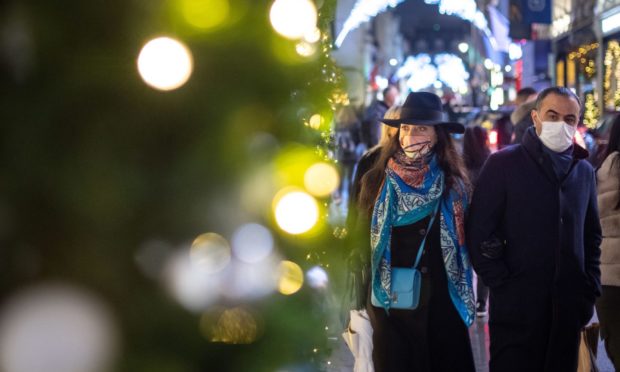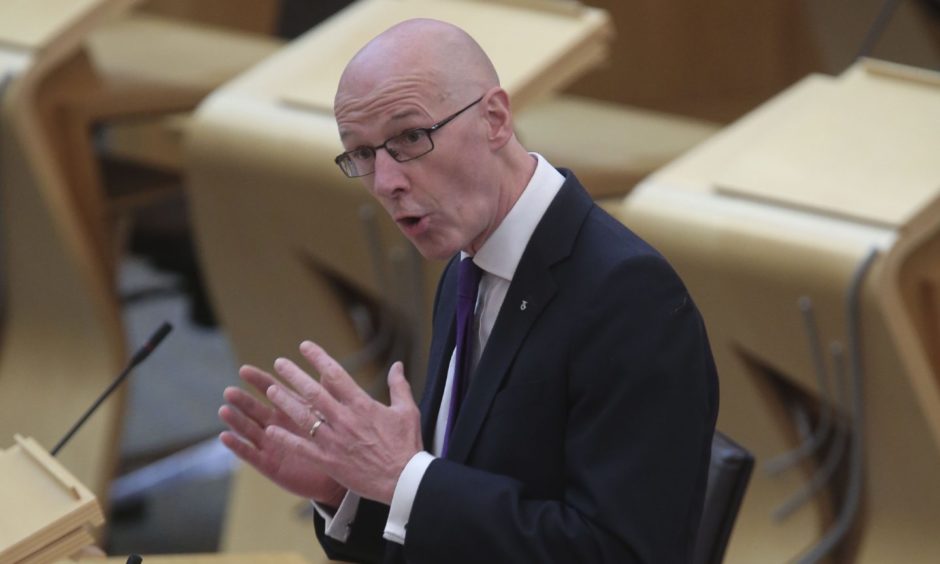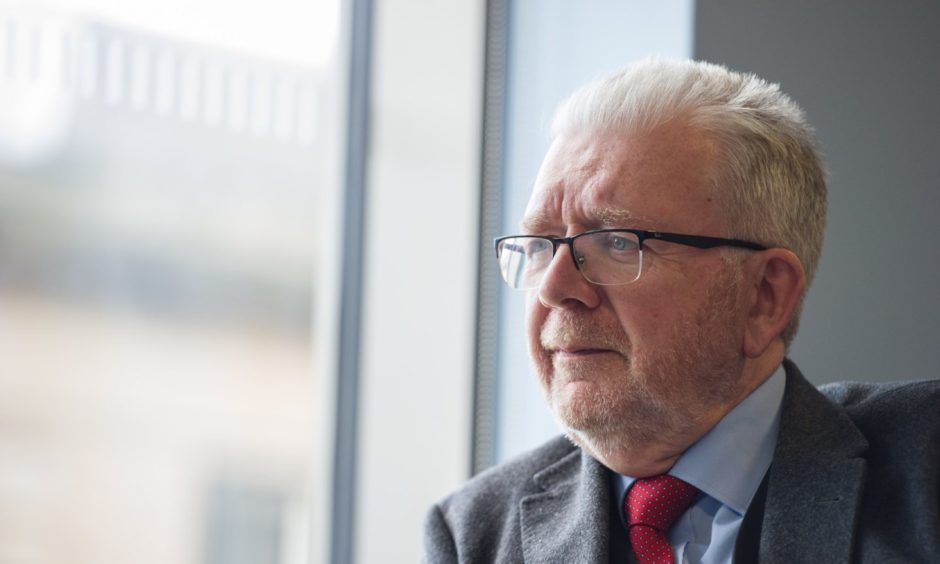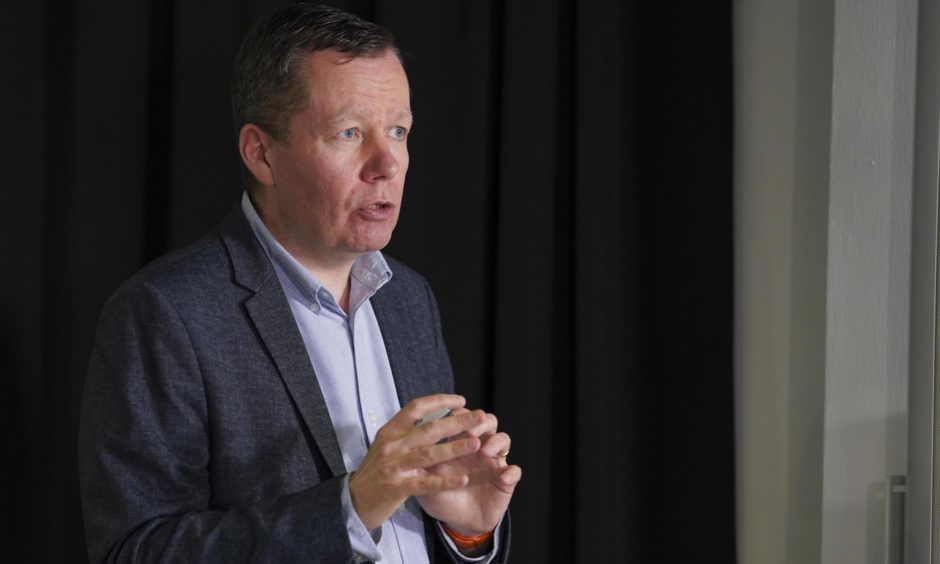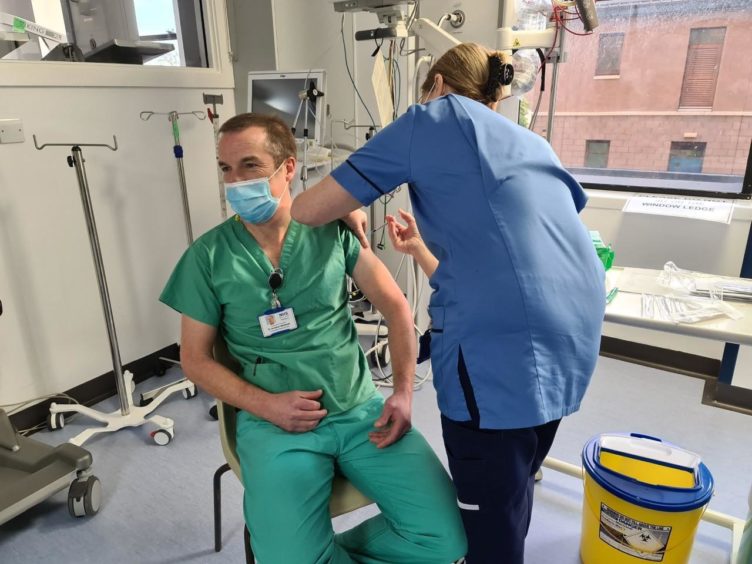Tougher coronavirus restrictions or a full lockdown after Christmas is a “possibility” as a “rising tide” of new infections pushes the R number in Scotland above one, the deputy first minister has said.
John Swinney confirmed the Cabinet will meet on Tuesday to discuss restrictions across the country but could not rule out announcing strict new measures just one day before the whole UK is set to enter five days of relaxed rules over the festive season.
Any changes to the Scottish Government’s five-tier system typically come into place three days later but with Christmas Day to fall on a Friday this year, any alterations to the current levels could take effect almost immediately or following the break.
The Scottish Government said the timing is still “under consideration at the moment” but it could add further confusion as Scots prepare to grapple with last-minute changes to the Christmas guidance announced by Nicola Sturgeon on Wednesday.
According to Mr Swinney, cases are rising in Scotland and the 99 cases per 100,000 people recorded 10 days ago has now increased to 116.
That has pushed the R number – how many individuals each infected person passes the virus on to – above one, meaning the number of infections is increasing and could grow out of control if officials are unable to stem the flow.
“Unfortunately, in Scotland today, we are in a rising tide of coronavirus cases,” he told the BBC. “The less we do to have social interaction in the period going forward, the better, in terms of stemming the rise in coronavirus cases within our community.”
The Welsh Government announced on Wednesday that tougher restrictions will be imposed on the country immediately after the Christmas easing period.
Asked if the Scottish Government is considering similar measures, the deputy first minister did not rule out the idea of a lockdown or tougher restrictions.
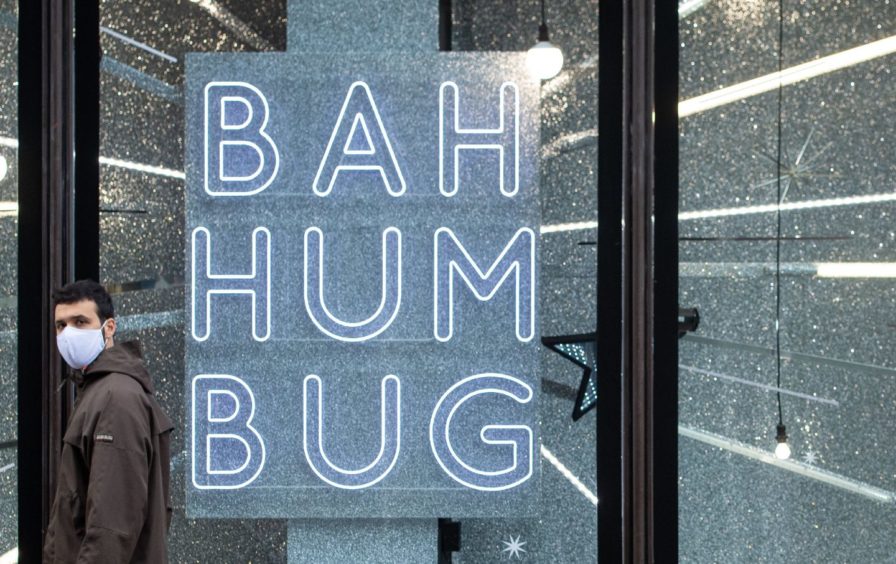
“We’ll have to look at what the forward prospects look like, we’ll have to take decisions that will be sustainable for a period into January and February to protect the public interest and protect the National Health Service,” he said.
Asked specifically if there could be greater restrictions or a possible lockdown, he said: “That could be a possibility, I can’t rule it out. We are on a rising tide of coronavirus cases.
“We will be looking, as we always do, at what the outlook is based on the data in front of us, and we have to take decisions, difficult decisions, to make sure we protect the public from a highly dangerous virus.”
‘Don’t do Hogmanay’
Restrictions will be eased from December 23 to 27 for Christmas but the Scottish Government has advised Scots to stay at home and mix only with their own household “if at all possible”.
At a meeting of the Scottish Parliament’s Covid-19 Committee on Thursday, constitution secretary Mike Russell said people should not “do Hogmanay”, in line with coronavirus restrictions.
He said: “If somebody can meet out of doors, they are permitted to meet out of doors, and maybe would wish to meet out of doors at midnight but don’t, in any sense, do it if you don’t feel you should do it.
“The rules that apply within the area that you live have to be applied, absolutely and to the letter. There is no relaxation at Hogmanay. No ifs, no buts, there is no relaxation on the requirements of the area in which you live.”
Mr Russell said people attending or hosting parties when restrictions are in place will be “putting themselves and others at serious risk of death”.
National clinical director Professor Jason Leitch told the committee: “Hogmanay is not cancelled, gatherings are cancelled, so you should celebrate in your household.”
Herd immunity
Prof Leitch also admitted there are some people in the country that he, or any other experts, will be unable to convince that the coronavirus vaccine is safe.
He said that from data he has seen 27 million people will “run towards” the vaccine when it is made available, while another 27 million will be “hesitant”.
Professor Wei Shen Lim, of the UK Joint Committee on Vaccination and Immunisation (JCVI), said around 70% to 80% of the population needs to be immunised in order for the UK to reach “herd immunity”.
Prof Lim, who is head of Covid-19 vaccination at the JCVI, was asked how many people need to receive the jab before restrictions can be eased safely but warned it is not yet clear whether the vaccine will block transmission of the virus.
He said: “It’s generally estimated that if a vaccine was highly effective at blocking transmission – maybe 70, 80 or 90% at blocking transmission – then given the transmissibility of this coronavirus, one might need to vaccinate up to 70% or 80% of the population.”
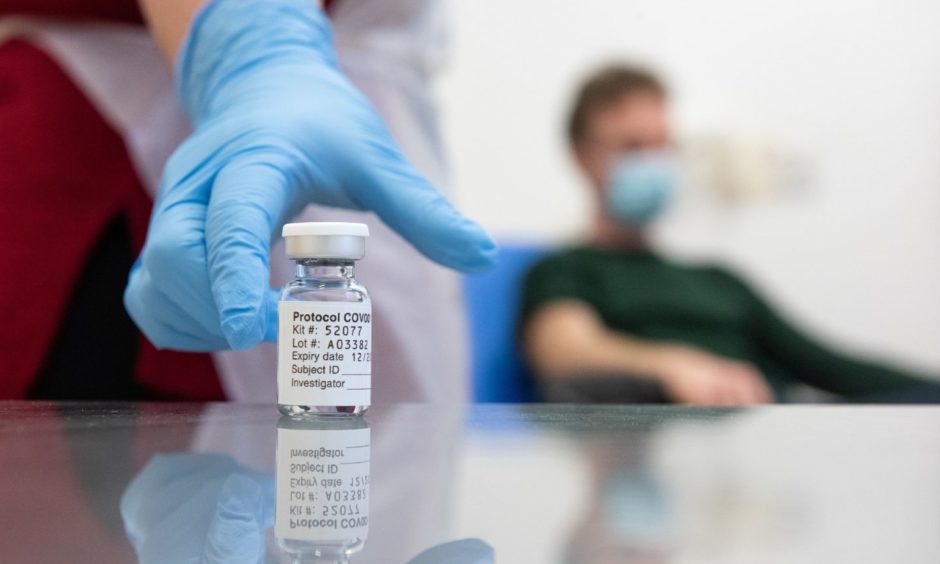
Professor Andrew Pollard, who is leading clinical trials for the Oxford vaccine and is chairman of the JCVI, said it would be wrong to focus entirely on herd immunity at this stage, as that may mean around 80%-90% of people need to be vaccinated.
Prof Pollard said some people will not be able to receive the vaccine and other countries will have lower vaccination rates but experts are drawing up plans to begin evaluating in the new year whether children and pregnant women can be safely vaccinated.
He added: “We should focus on protecting the vulnerable and having as many people as possible vaccinated in the population for the direct protection.
“We will get some impact on transmission as well but we won’t stop the virus completely in the first few months of next year.”
Prof Leith said many of the people reluctant to take the vaccine are not “anti-vax” and just want more information to know it is safe. However, he admitted there will always be some people “even the best experts” struggle to reach.
“To be completely honest, I’m not sure there’s much I can do for the extreme edge who think we’re microchipping the vaccine to follow people around the country,” he said. “I’m not sure there’s much I can do to communicate with that group.”
